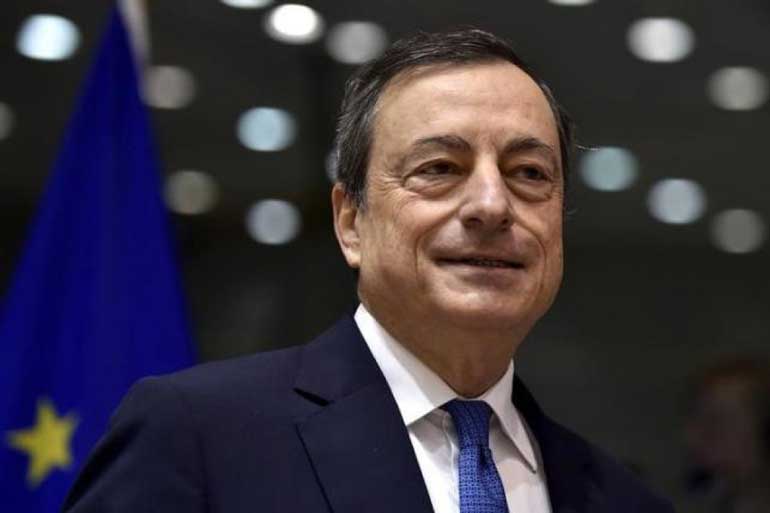Wednesday Feb 25, 2026
Wednesday Feb 25, 2026
Saturday, 21 November 2015 00:00 - - {{hitsCtrl.values.hits}}

Reuters: The European Central Bank is ready to act quickly to boost anemic inflation in the euro zone, its president said on Friday, highlighting changes to its asset purchase program and deposit rate as possible tools.
Mario Draghi’s comments offered the strongest hint yet that the ECB will unveil fresh stimulus measures at its Dec. 3 meeting to stop inflation from falling further below its target of just under 2%.
“If we decide that the current trajectory of our policy is not sufficient to achieve our objective, we will do what we must to raise inflation as quickly as possible,” Draghi told a conference in Frankfurt.
His audience included the most prominent critic of the ECB’s ultra-easy policy on the bank’s Governing Council, Bundesbank president Jens Weidmann. Germany’s Finance Minister Wolfgang Schaeuble, who has also openly criticized the ECB in several occasions, was also due to speak at the event.
The ECB has bought 60 billion euros ($64 billion) a month of mostly government bonds since March to help revive inflation, but prices rose just 0.1% in October.
Draghi defended the ECB’s quantitative easing (QE) asset purchase program, saying it had brought down borrowing costs for euro zone companies. He said the scheme could be expanded and extended and its composition changed to provide further stimulus.
He said the ECB could also change the level of its deposit rate to boost the impact of QE.
The ECB’s deposit rate is currently -0.20 points, meaning banks are charged to park cash at the ECB, giving them an added incentive to lend, rather than pile reserves at the central bank.
Markets are expecting further ECB action on Dec. 3, most likely including a further cut to the deposit rate and an extension of the asset purchases beyond their scheduled end in September 2016.
Draghi said the ECB will act if it concludes that euro zone inflation was at risk of falling further away from the ECB’s target, echoing concerns already expressed at the October meeting of the bank’s Governing Council.
“If we conclude that the balance of risks to our medium-term price stability objective is skewed to the downside, we will act by using all the instruments available within our mandate,” Draghi said.